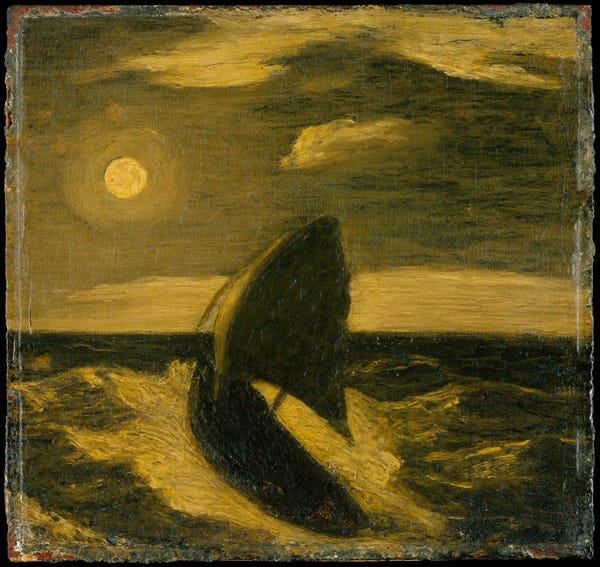The Many Faces of the Liahona
Or, Entering the Wilderness
As Alma recognized hundreds of years later, the Liahona and, by extension, the journey of Lehi’s family through the wilderness is full of symbolism for our mortal lives. Our daily walk through this rough-and-tumble world, distanced from God, is like wandering in a wilderness with both path and destination obscured. We rely on faith, commandments, prophets and the promptings of the Holy Ghost to lead us to the small miracles that sustain us day by day.
The wilderness image isn’t just confined to the early passages of the Book of Mormon, however. From Adam and Eve’s departure from the garden to Abraham’s departure from Ur, to Moses and the Israelites fleeing Egypt, to John the Baptist preaching beyond Jordan, to the temptations of Christ, to the pioneers driven out of Nauvoo, the wilderness is everywhere. Navigating the wilderness seems to be the default state of those who follow the Lord. Sometimes the wilderness is more spiritual than it is physical, like it is today, but it is always there.
And that is what makes the Liahona so important. If we examine it closely and compare its role to the experiences of others in the wilderness, through the power of God it can lead us to the promised land.
First, the Liahona, like the Israelites’ manna, is a daily practice. The Liahona was not a map that showed the journey through the wilderness and across the sea from beginning to end. The direction the arrows pointed could change at any moment based on their location, need, or faith, meaning that they had to always be attentive to it. Manna for Moses and the children of Israel teaches a similar lesson. It didn’t last from day to day, so it always had to be gathered fresh, but it also changed based on the needs of the day (i.e. falling double on the day before the sabbath). From this we learn that God will be attentive to our needs in the wilderness, even as they change/ But to benefit from that we have to stay attentive to how God is speaking to us and how the message might change.
The Liahona is also like John the Baptist, a voice crying out in the wilderness, “Prepare ye the way of the Lord and make his paths straight.” The Liahona is a symbol, a reminder, a forerunner, if you will, of God’s presence. While it serves an important purpose in its own right, its most important role is to direct our attention to something other than itself. John directed his followers’ attention to the Savior. So, too, the Liahona directed its followers’ gaze toward the Savior and led them to the place where Nephi was promised he would truly know God (see 1 Nephi 17:14). These voices in the wilderness remind us of God’s presence even as we are wandering or lost. At the same time, it is often only in the wilderness, where other noise and distractions are gone, that we can really hear the Lord’s voice speaking.
Like the Brother of Jared’s white stones. The Liahona is a reminder of our reliance on God. I’m sure the Lord could have made it possible for the Jaredites to use fire or windows for light (see 1 Nephi 17:50), but one thing that would have done was made it easier to forget their reliance on the Lord. If they were just making fires or looking out windows, which are common enough tasks, that may have made them feel they were relying on their own strength. Though they may have eventually grown accustomed to the stones, the fact that replicating them was beyond their ability could remind them of their mortal weakness and God’s grace. The same can be said of the Liahona, with the episode of the storm on the ship serving as an example of how God can withdraw his power and protection.
The three examples I’ve given here don’t come anywhere close to exhausting the insights we can get from studying the Liahona. I would love to hear any insights or comparisons that have been meaningful to you. But the thing I take from all of this is that the Lord will not leave us alone if we rely on Him. So, go. Leave the comforts of Babylon, Detroit, Tallahassee, Dallas, Salt Lake City, or whatever section of civilization you find yourself in. Leave (spiritually if not physically) the portion of the great and spacious building you call home and go into the wilderness. Find the voice, Liahona, manna, or stones that God has prepared for you and follow it. It is only in the wilderness that you can find the end of the iron rod to hold on to. So go quickly, for He comes quickly. Godspeed.
Thanks for reading! As always, you can write to me at latterdayss220@gmail.com with any questions, comments, or ideas.


